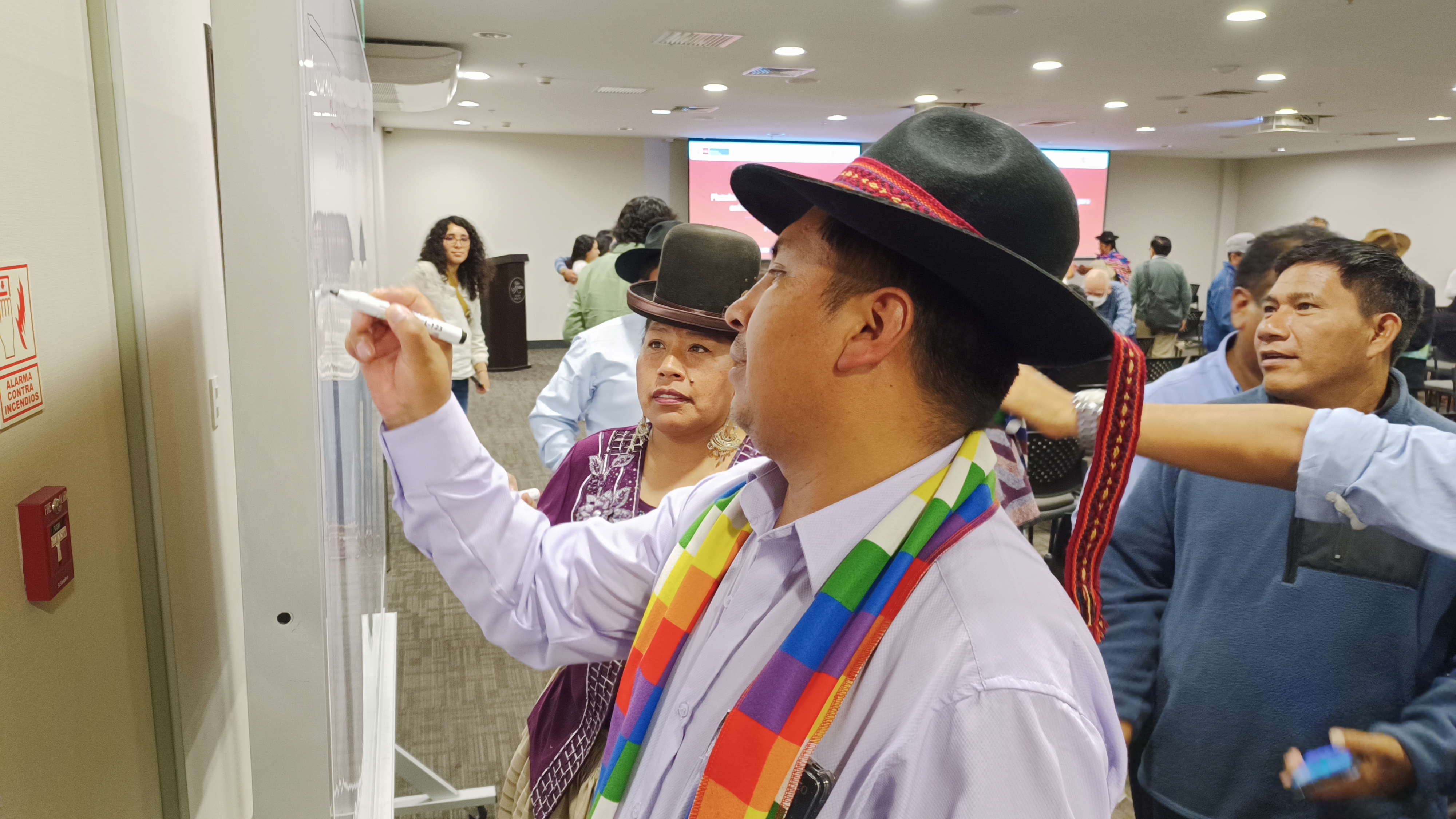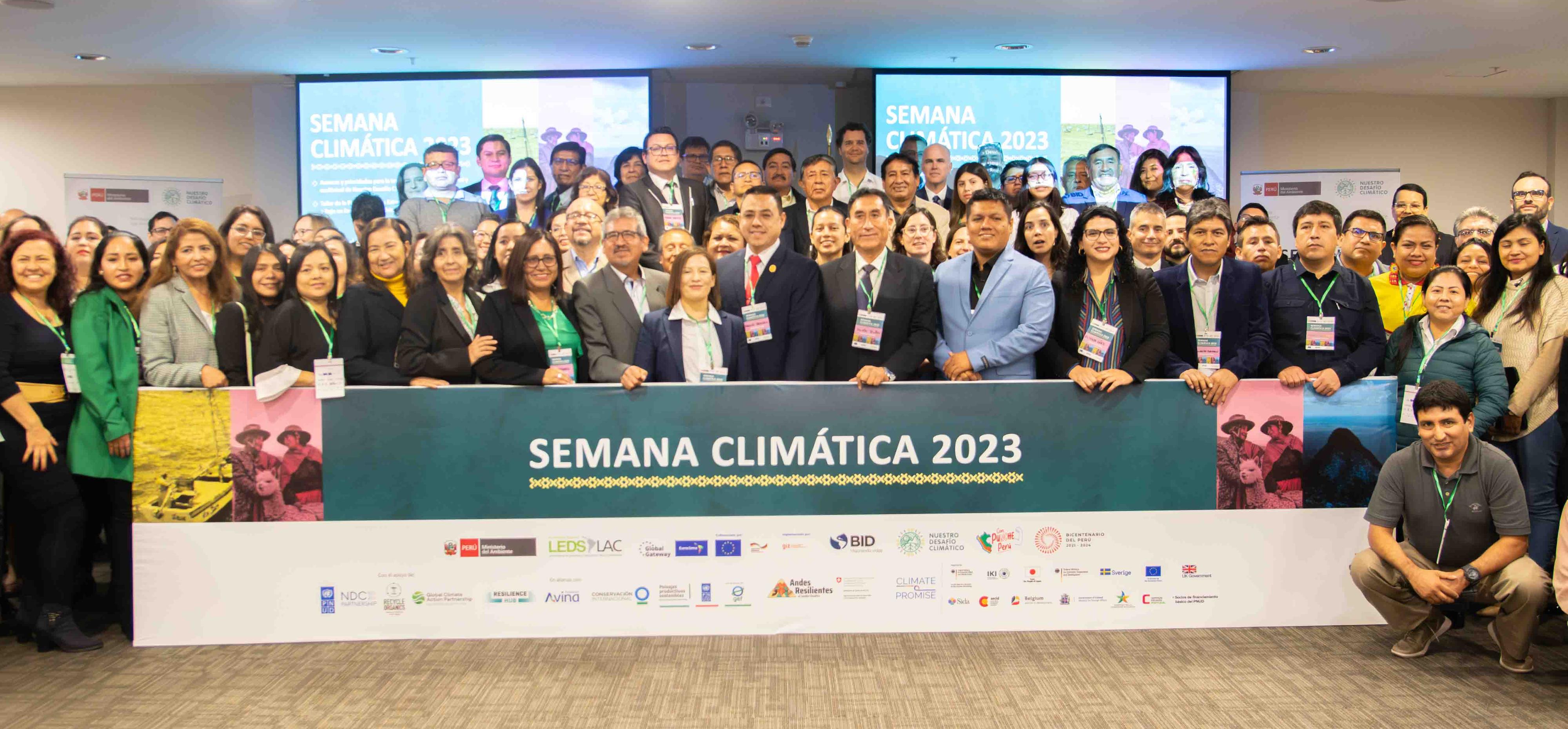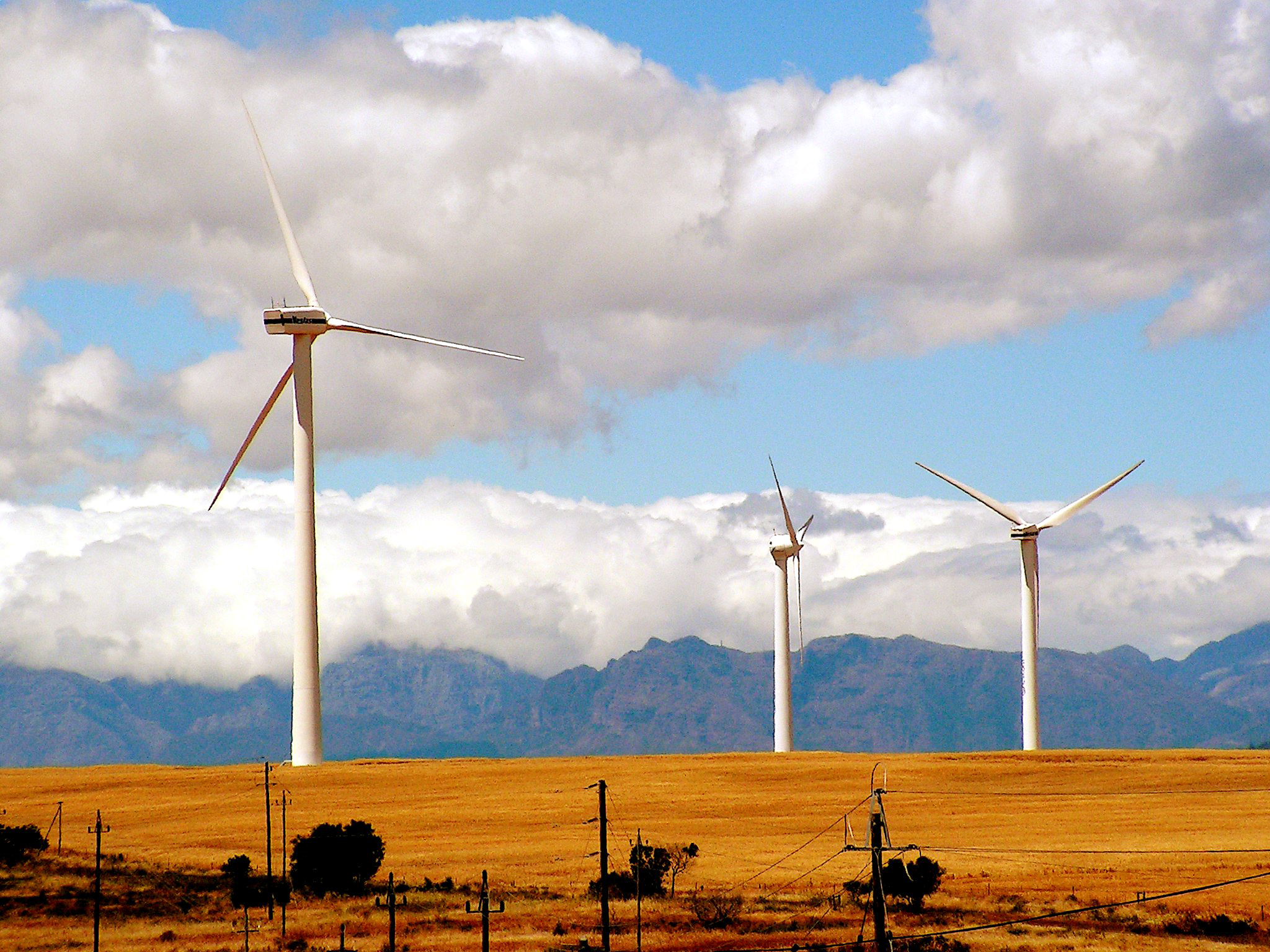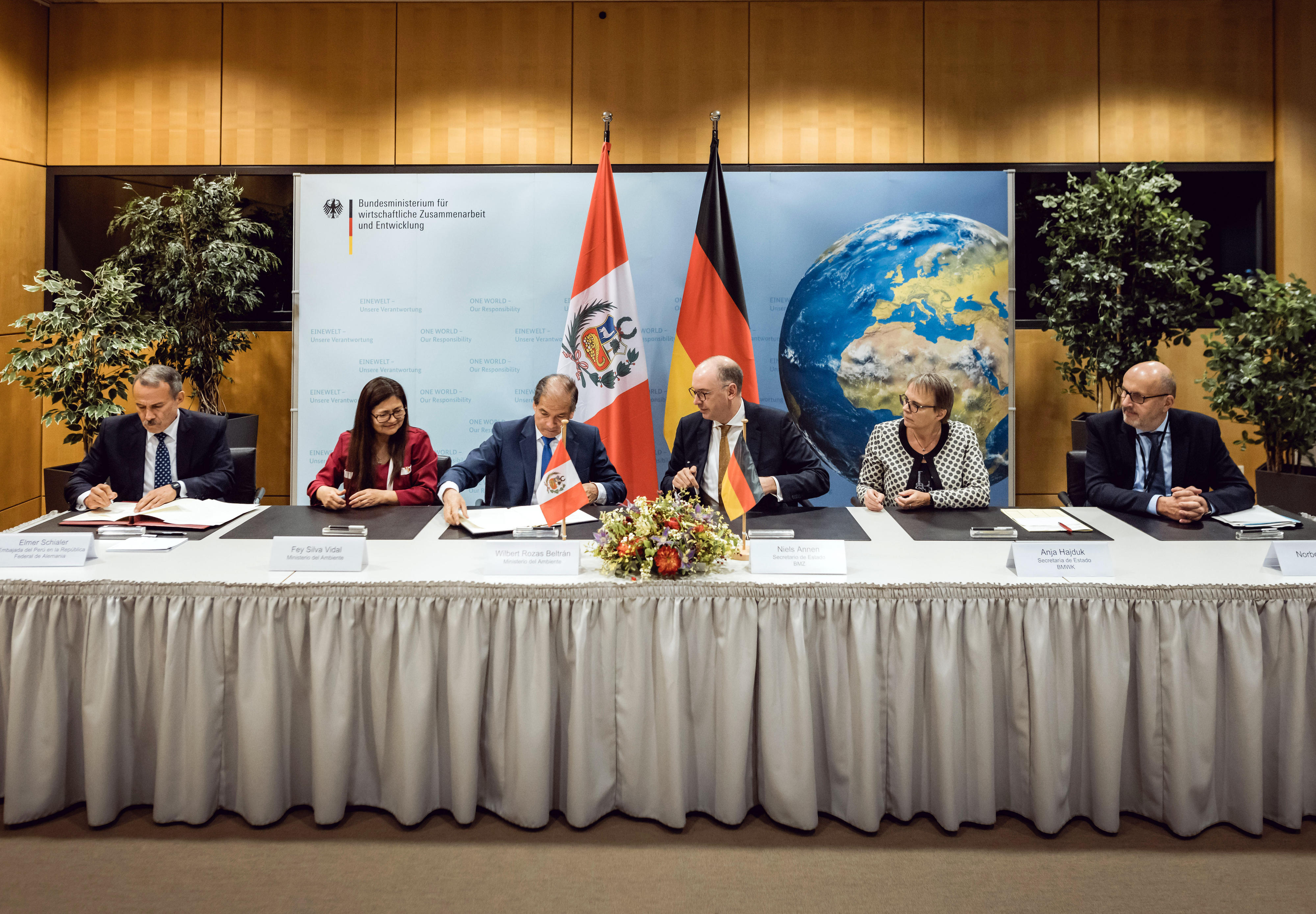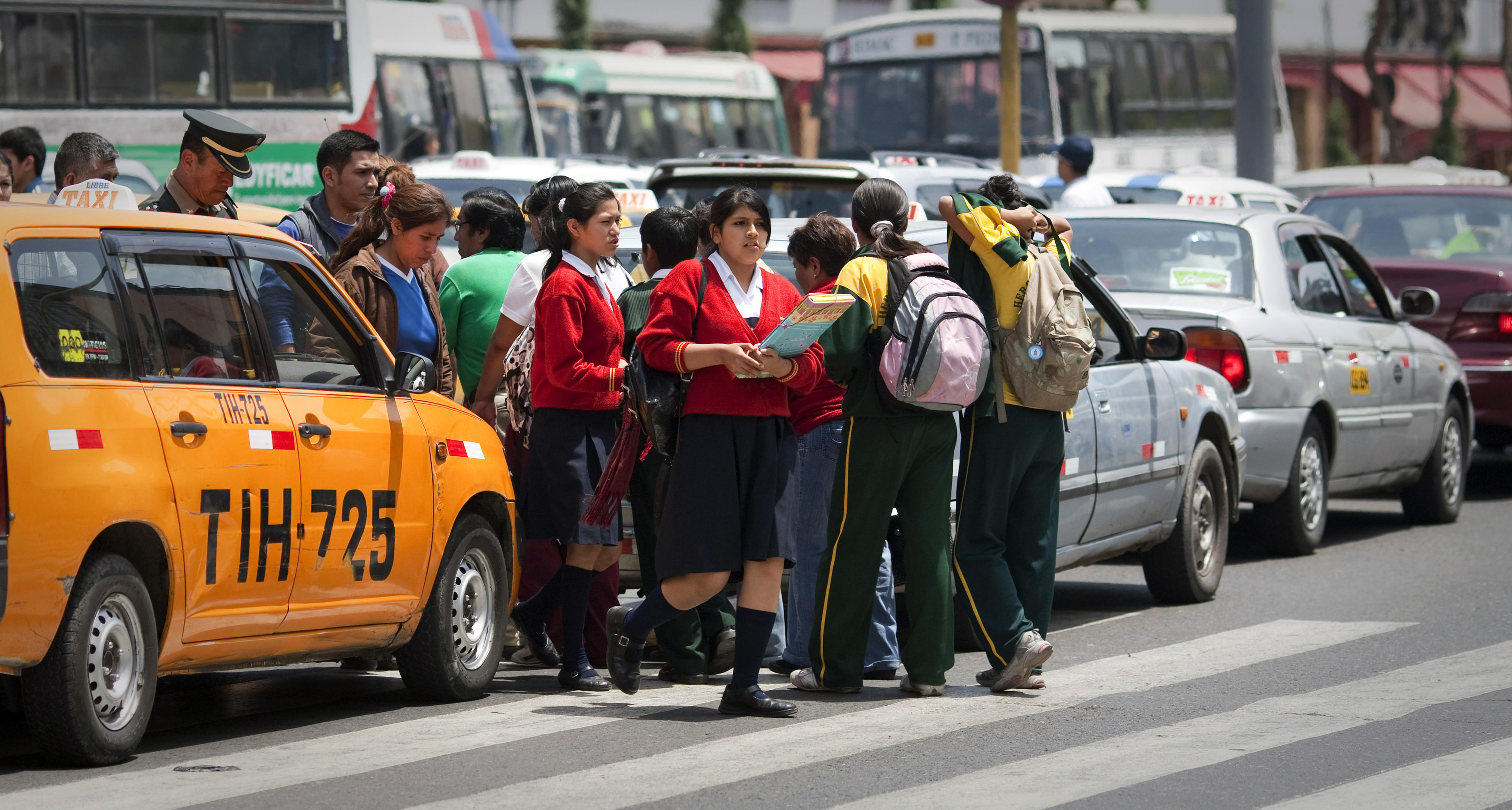Peru: Cooperation in action Dialogue processes – a key climate policy instrument
Peru has launched various climate policy initiatives and has enhanced existing interventions.
A national commission on climate change coordinates Peru's climate policy across sectors. The country also established a National Registry of Mitigation Measures (RENAMI) in November 2024 in order to improve cooperation with the private sector. Another example is the Huella de Carbono Perú (Peru carbon footprint) programme, which assists enterprises in measuring and reducing their carbon emissions. It covers more than 1,800 companies. Circular economy activities are playing an increasing role in the programme.
Climate policy can only be effective if it has the support of the public (Just Transition). The United Nations Development Programme (UNDP) has therefore supported the drafting of Peru's long-term climate strategy (External link) through its Climate Promise (External link) programme. This has helped to strengthen dialogue and cooperation between governmental and non-governmental players on climate governance (mitigation and adaptation).
The cooperation has done much to enhance Peru's climate strategy processes. The government has produced a comprehensive climate finance strategy, which also served to prepare its national negotiating position for the UN climate summit (COP28) in Dubai. Support has also been provided for a continuous dialogue between the ministries responsible for implementing the Nationally Determined Contributions (NDCs) in order to ensure that the climate goals will be implemented in a coordinated and coherent manner.
Inclusive cooperation – involving Indigenous and regional stakeholders
With support from UNDP's Climate Promise and from the Euroclima+ regional climate change programme (funded by the EU and the BMZ) and the NDC Partnership's Support Unit, Peru's Environment Ministry has produced a roadmap to support enhanced participation by governmental and non-governmental stakeholders, which was adopted by the national commission on climate change in March 2023. This participatory process, which is known as Dialoguemos, deals with topics such as the climate change act, the NDC, forests and climate change, and desertification and climate. The roadmap provides for workshops to facilitate dialogue between key stakeholders, particularly Indigenous Peoples and regional governments, and supports the development of their climate policy capacities.
4th National Meeting of the Platform of Indigenous Peoples on Climate Change (PIPCC) from 9 to 11 August 2023, focusing on the development of the climate finance strategy and the national position for COP28.
Indigenous groups' efforts to bring influence to bear on climate policy are supported through dialogue formats such as the 4th national conference of the Indigenous Peoples' Platform against Climate Change (PPICC) in August 2023. The purpose of the conference was to strengthen the capacity of Indigenous organisations, with a special focus on enabling them to participate effectively in the development of the climate finance strategy and Peru's COP negotiating position. The three-day event was attended by 56 female and 36 male representatives of seven national Indigenous organisations.
The regional governments (GORES) are also key stakeholders. Peru’s Climate Week in August 2023 brought together more than 70 representatives of the country's 25 regional governments and the Lima municipal administration, with a view to strengthening their role in implementing adaptation and mitigation measures. Climate Week included events on climate financing and provided space for dialogue between governmental and non-governmental stakeholders.
Meeting with regional governments (GORES) as part of Peru's Climate Week from 20 to 23 August 2023, focusing on strengthening the role of GORES in the implementation of the NDCs.
These examples show that if many perspectives are taken on board, just and viable climate policies can be defined – policies that enjoy the backing of the people and are aligned with the SDGs. This is true for Peru, but also worldwide.
Peruvian-German Climate and Development Partnership
Germany and Peru have been working together closely for many years. In their bilateral development cooperation programme, the focus has been on the protection of global public goods such as the climate, biodiversity and forests.
In November 2022, Germany and Peru further deepened their partnership by concluding a Climate and Development Partnership. Since then, the BMZ, the German Ministry for Economic Affairs, the German Foreign Office and the German Environment Ministry have been supporting Peru in its efforts to implement and update its national climate targets. Key elements of the Partnership include the expansion of Financial and Technical Cooperation, climate finance support, and efforts to strengthen dialogue and cooperation encompassing the private sector, civil society, Indigenous communities and academia in order to ensure that Peru's approach to climate action will be comprehensive and inclusive.
As at: 01/10/2025
